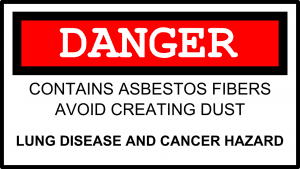If your home has high radon levels, you are required to disclose this to potential buyers and provide them with a pamphlet that explains the risks of radon exposure.
When you are selling your home, there are a number of laws you need to be aware of. These laws are designed to protect you and the buyer and ensure that the transaction is fair and legal.
Fair Housing Act
Conventional loan rates aren’t the only things you need to consider when buying or selling. The first law you should know about is the Fair Housing Act. This law prohibits discrimination in housing transactions based on race, color, national origin, religion, sex, familial status, or disability. This means that you cannot refuse to sell your home to someone because of these characteristics. You also cannot advertise your home in a way that would discourage someone from buying it based on these characteristics.
When it comes to selling your home, the Fair Housing Act is designed to protect both buyers and sellers from discrimination. As the seller, it’s essential to be aware of the law and ensure that you’re not inadvertently discriminating against potential buyers. By following the law, you can help ensure a fair and equitable sale for everyone involved. By following the law, you can help ensure a fair and equitable deal for everyone involved.
Truth in Advertising Law
The second law you should know about is the Truth in Advertising Law. This law requires that all advertising for homes must be truthful and not misleading. This means that you cannot make any false claims about your home in ads or when speaking to potential buyers. You also cannot omit any meaningful information about your home, such as if a natural disaster has damaged it.
Be honest about your home’s condition. No one wants to buy a fixer-upper, but if you’re upfront about the repairs that need to be made, you’ll be more likely to find a buyer willing to take on the project. Of course, if there are any serious problems with the house, you’ll need to disclose them. It may not be easy to sell a home that needs work, but being honest is the best policy.
Lead-Based Paint Disclosure Law
The third law you should know about is the Lead-Based Paint Disclosure Law. If your home was built before 1978, it might contain lead-based paint. You must disclose this to potential buyers and provide them with a pamphlet that explains the risks of lead exposure. You are also required to provide a disclosure form that the buyer must sign before the sale can be completed. It’s essential to understand this law and make sure you’re keeping potential buyers aware.
Asbestos Disclosure Law

The fourth law you should know about is the Asbestos Disclosure Law. If your home contains asbestos, you are required to disclose this to potential buyers. You must also provide them with a pamphlet that explains the risks of asbestos exposure. You are also required to provide a disclosure form that the buyer must sign before the sale can be completed.
Radon Disclosure Law
The fifth and final law you should know is the Radon Disclosure Law. Radon is a gas that can be found in homes that have been linked to lung cancer. If your home has high radon levels, you are required to disclose this to potential buyers and provide them with a pamphlet that explains the risks of radon exposure. You are also required to provide a disclosure form that the buyer must sign before the sale can be completed.
Selling your home is a big decision, and there are many things to think about. But if you’re aware of the laws surrounding home sales, you can help ensure that the process is fair and legal for both you and the buyer. Bottom line, if you are thinking of selling your home, make sure you are familiar with these laws. By understanding and following these laws, you can help make sure that the sale of your home goes smoothly and that both you and the buyer are protected.


Join the conversation!